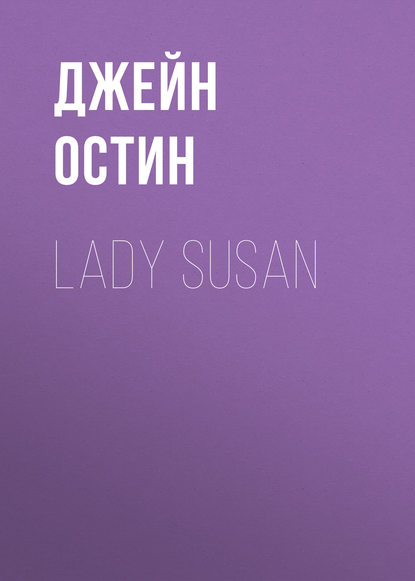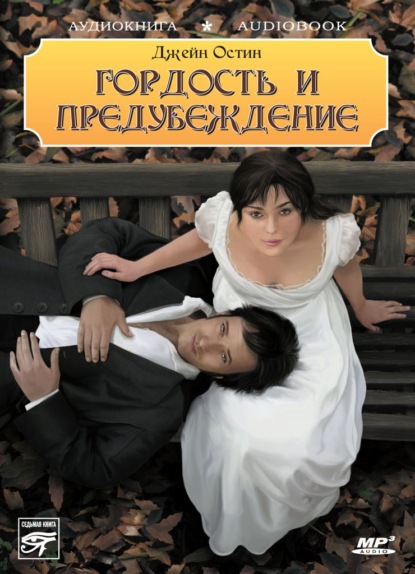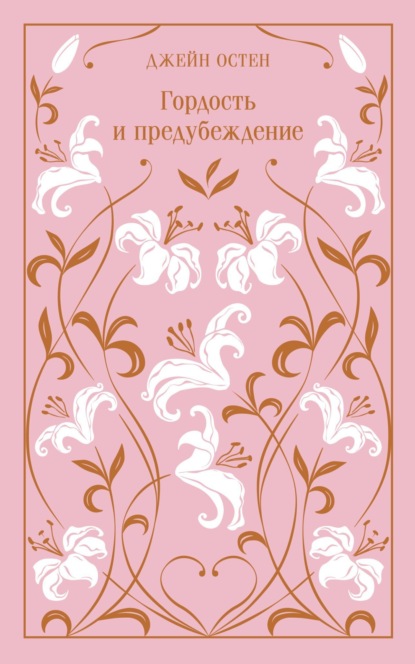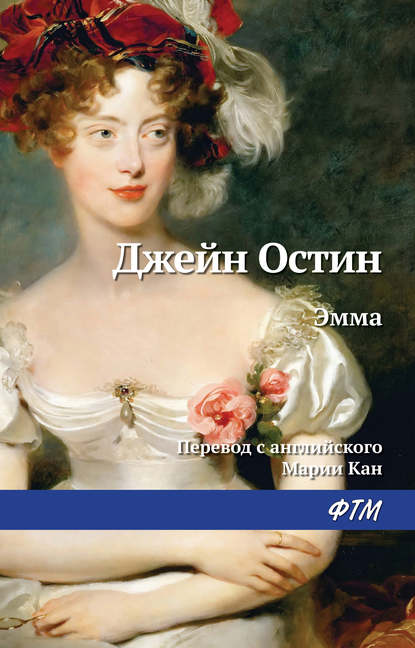 Полная версия
Полная версияПолная версия:
Джейн Остин Lady Susan
- + Увеличить шрифт
- - Уменьшить шрифт

Jane Austen
Lady Susan
I
LADY SUSAN VERNON TO MR. VERNON
Langford, Dec.
MY DEAR BROTHER, – I can no longer refuse myself the pleasure of profiting by your kind invitation when we last parted of spending some weeks with you at Churchhill, and, therefore, if quite convenient to you and Mrs. Vernon to receive me at present, I shall hope within a few days to be introduced to a sister whom I have so long desired to be acquainted with. My kind friends here are most affectionately urgent with me to prolong my stay, but their hospitable and cheerful dispositions lead them too much into society for my present situation and state of mind; and I impatiently look forward to the hour when I shall be admitted into your delightful retirement.
I long to be made known to your dear little children, in whose hearts I shall be very eager to secure an interest I shall soon have need for all my fortitude, as I am on the point of separation from my own daughter. The long illness of her dear father prevented my paying her that attention which duty and affection equally dictated, and I have too much reason to fear that the governess to whose care I consigned her was unequal to the charge. I have therefore resolved on placing her at one of the best private schools in town, where I shall have an opportunity of leaving her myself in my way to you. I am determined, you see, not to be denied admittance at Churchhill. It would indeed give me most painful sensations to know that it were not in your power to receive me.
Your most obliged and affectionate sister,
S. VERNON.
II
LADY SUSAN VERNON TO MRS. JOHNSON
Langford.
You were mistaken, my dear Alicia, in supposing me fixed at this place for the rest of the winter: it grieves me to say how greatly you were mistaken, for I have seldom spent three months more agreeably than those which have just flown away. At present, nothing goes smoothly; the females of the family are united against me. You foretold how it would be when I first came to Langford, and Mainwaring is so uncommonly pleasing that I was not without apprehensions for myself. I remember saying to myself, as I drove to the house, "I like this man, pray Heaven no harm come of it!" But I was determined to be discreet, to bear in mind my being only four months a widow, and to be as quiet as possible: and I have been so, my dear creature; I have admitted no one's attentions but Mainwaring's. I have avoided all general flirtation whatever; I have distinguished no creature besides, of all the numbers resorting hither, except Sir James Martin, on whom I bestowed a little notice, in order to detach him from Miss Mainwaring; but, if the world could know my motive THERE they would honour me. I have been called an unkind mother, but it was the sacred impulse of maternal affection, it was the advantage of my daughter that led me on; and if that daughter were not the greatest simpleton on earth, I might have been rewarded for my exertions as I ought.
Sir James did make proposals to me for Frederica; but Frederica, who was born to be the torment of my life, chose to set herself so violently against the match that I thought it better to lay aside the scheme for the present. I have more than once repented that I did not marry him myself; and were he but one degree less contemptibly weak I certainly should: but I must own myself rather romantic in that respect, and that riches only will not satisfy me. The event of all this is very provoking: Sir James is gone, Maria highly incensed, and Mrs. Mainwaring insupportably jealous; so jealous, in short, and so enraged against me, that, in the fury of her temper, I should not be surprized at her appealing to her guardian, if she had the liberty of addressing him: but there your husband stands my friend; and the kindest, most amiable action of his life was his throwing her off for ever on her marriage. Keep up his resentment, therefore, I charge you. We are now in a sad state; no house was ever more altered; the whole party are at war, and Mainwaring scarcely dares speak to me. It is time for me to be gone; I have therefore determined on leaving them, and shall spend, I hope, a comfortable day with you in town within this week. If I am as little in favour with Mr. Johnson as ever, you must come to me at 10 Wigmore street; but I hope this may not be the case, for as Mr. Johnson, with all his faults, is a man to whom that great word "respectable" is always given, and I am known to be so intimate with his wife, his slighting me has an awkward look.
I take London in my way to that insupportable spot, a country village; for I am really going to Churchhill. Forgive me, my dear friend, it is my last resource. Were there another place in England open to me I would prefer it. Charles Vernon is my aversion; and I am afraid of his wife. At Churchhill, however, I must remain till I have something better in view. My young lady accompanies me to town, where I shall deposit her under the care of Miss Summers, in Wigmore street, till she becomes a little more reasonable. She will made good connections there, as the girls are all of the best families. The price is immense, and much beyond what I can ever attempt to pay.
Adieu, I will send you a line as soon as I arrive in town.
Yours ever,
S. VERNON.
III
MRS. VERNON TO LADY DE COURCY
Churchhill.
My dear Mother, – I am very sorry to tell you that it will not be in our power to keep our promise of spending our Christmas with you; and we are prevented that happiness by a circumstance which is not likely to make us any amends. Lady Susan, in a letter to her brother-in-law, has declared her intention of visiting us almost immediately; and as such a visit is in all probability merely an affair of convenience, it is impossible to conjecture its length. I was by no means prepared for such an event, nor can I now account for her ladyship's conduct; Langford appeared so exactly the place for her in every respect, as well from the elegant and expensive style of living there, as from her particular attachment to Mr. Mainwaring, that I was very far from expecting so speedy a distinction, though I always imagined from her increasing friendship for us since her husband's death that we should, at some future period, be obliged to receive her. Mr. Vernon, I think, was a great deal too kind to her when he was in Staffordshire; her behaviour to him, independent of her general character, has been so inexcusably artful and ungenerous since our marriage was first in agitation that no one less amiable and mild than himself could have overlooked it all; and though, as his brother's widow, and in narrow circumstances, it was proper to render her pecuniary assistance, I cannot help thinking his pressing invitation to her to visit us at Churchhill perfectly unnecessary. Disposed, however, as he always is to think the best of everyone, her display of grief, and professions of regret, and general resolutions of prudence, were sufficient to soften his heart and make him really confide in her sincerity; but, as for myself, I am still unconvinced, and plausibly as her ladyship has now written, I cannot make up my mind till I better understand her real meaning in coming to us. You may guess, therefore, my dear madam, with what feelings I look forward to her arrival. She will have occasion for all those attractive powers for which she is celebrated to gain any share of my regard; and I shall certainly endeavour to guard myself against their influence, if not accompanied by something more substantial. She expresses a most eager desire of being acquainted with me, and makes very gracious mention of my children but I am not quite weak enough to suppose a woman who has behaved with inattention, if not with unkindness, to her own child, should be attached to any of mine. Miss Vernon is to be placed at a school in London before her mother comes to us which I am glad of, for her sake and my own. It must be to her advantage to be separated from her mother, and a girl of sixteen who has received so wretched an education, could not be a very desirable companion here. Reginald has long wished, I know, to see the captivating Lady Susan, and we shall depend on his joining our party soon. I am glad to hear that my father continues so well; and am, with best love, &c.,
CATHERINE VERNON.
IV
MR. DE COURCY TO MRS. VERNON
Parklands.
My dear Sister, – I congratulate you and Mr. Vernon on being about to receive into your family the most accomplished coquette in England. As a very distinguished flirt I have always been taught to consider her, but it has lately fallen in my way to hear some particulars of her conduct at Langford: which prove that she does not confine herself to that sort of honest flirtation which satisfies most people, but aspires to the more delicious gratification of making a whole family miserable. By her behaviour to Mr. Mainwaring she gave jealousy and wretchedness to his wife, and by her attentions to a young man previously attached to Mr. Mainwaring's sister deprived an amiable girl of her lover.
I learnt all this from Mr. Smith, now in this neighbourhood (I have dined with him, at Hurst and Wilford), who is just come from Langford where he was a fortnight with her ladyship, and who is therefore well qualified to make the communication.
What a woman she must be! I long to see her, and shall certainly accept your kind invitation, that I may form some idea of those bewitching powers which can do so much – engaging at the same time, and in the same house, the affections of two men, who were neither of them at liberty to bestow them – and all this without the charm of youth! I am glad to find Miss Vernon does not accompany her mother to Churchhill, as she has not even manners to recommend her; and, according to Mr. Smith's account, is equally dull and proud. Where pride and stupidity unite there can be no dissimulation worthy notice, and Miss Vernon shall be consigned to unrelenting contempt; but by all that I can gather Lady Susan possesses a degree of captivating deceit which it must be pleasing to witness and detect. I shall be with you very soon, and am ever,
Your affectionate brother,
R. DE COURCY.
V
LADY SUSAN VERNON TO MRS. JOHNSON
Churchhill.
I received your note, my dear Alicia, just before I left town, and rejoice to be assured that Mr. Johnson suspected nothing of your engagement the evening before. It is undoubtedly better to deceive him entirely, and since he will be stubborn he must be tricked. I arrived here in safety, and have no reason to complain of my reception from Mr. Vernon; but I confess myself not equally satisfied with the behaviour of his lady. She is perfectly well-bred, indeed, and has the air of a woman of fashion, but her manners are not such as can persuade me of her being prepossessed in my favour. I wanted her to be delighted at seeing me. I was as amiable as possible on the occasion, but all in vain. She does not like me. To be sure when we consider that I DID take some pains to prevent my brother-in-law's marrying her, this want of cordiality is not very surprizing, and yet it shows an illiberal and vindictive spirit to resent a project which influenced me six years ago, and which never succeeded at last.
I am sometimes disposed to repent that I did not let Charles buy Vernon Castle, when we were obliged to sell it; but it was a trying circumstance, especially as the sale took place exactly at the time of his marriage; and everybody ought to respect the delicacy of those feelings which could not endure that my husband's dignity should be lessened by his younger brother's having possession of the family estate. Could matters have been so arranged as to prevent the necessity of our leaving the castle, could we have lived with Charles and kept him single, I should have been very far from persuading my husband to dispose of it elsewhere; but Charles was on the point of marrying Miss De Courcy, and the event has justified me. Here are children in abundance, and what benefit could have accrued to me from his purchasing Vernon? My having prevented it may perhaps have given his wife an unfavourable impression, but where there is a disposition to dislike, a motive will never be wanting; and as to money matters it has not withheld him from being very useful to me. I really have a regard for him, he is so easily imposed upon! The house is a good one, the furniture fashionable, and everything announces plenty and elegance. Charles is very rich I am sure; when a man has once got his name in a banking-house he rolls in money; but they do not know what to do with it, keep very little company, and never go to London but on business. We shall be as stupid as possible. I mean to win my sister-in-law's heart through the children; I know all their names already, and am going to attach myself with the greatest sensibility to one in particular, a young Frederic, whom I take on my lap and sigh over for his dear uncle's sake.
Poor Mainwaring! I need not tell you how much I miss him, how perpetually he is in my thoughts. I found a dismal letter from him on my arrival here, full of complaints of his wife and sister, and lamentations on the cruelty of his fate. I passed off the letter as his wife's, to the Vernons, and when I write to him it must be under cover to you.
Ever yours, S. VERNON.
VI
MRS. VERNON TO MR. DE COURCY
Churchhill.
Well, my dear Reginald, I have seen this dangerous creature, and must give you some description of her, though I hope you will soon be able to form your own judgment. She is really excessively pretty; however you may choose to question the allurements of a lady no longer young, I must, for my own part, declare that I have seldom seen so lovely a woman as Lady Susan. She is delicately fair, with fine grey eyes and dark eyelashes; and from her appearance one would not suppose her more than five and twenty, though she must in fact be ten years older, I was certainly not disposed to admire her, though always hearing she was beautiful; but I cannot help feeling that she possesses an uncommon union of symmetry, brilliancy, and grace. Her address to me was so gentle, frank, and even affectionate, that, if I had not known how much she has always disliked me for marrying Mr. Vernon, and that we had never met before, I should have imagined her an attached friend. One is apt, I believe, to connect assurance of manner with coquetry, and to expect that an impudent address will naturally attend an impudent mind; at least I was myself prepared for an improper degree of confidence in Lady Susan; but her countenance is absolutely sweet, and her voice and manner winningly mild. I am sorry it is so, for what is this but deceit? Unfortunately, one knows her too well. She is clever and agreeable, has all that knowledge of the world which makes conversation easy, and talks very well, with a happy command of language, which is too often used, I believe, to make black appear white. She has already almost persuaded me of her being warmly attached to her daughter, though I have been so long convinced to the contrary. She speaks of her with so much tenderness and anxiety, lamenting so bitterly the neglect of her education, which she represents however as wholly unavoidable, that I am forced to recollect how many successive springs her ladyship spent in town, while her daughter was left in Staffordshire to the care of servants, or a governess very little better, to prevent my believing what she says.
If her manners have so great an influence on my resentful heart, you may judge how much more strongly they operate on Mr. Vernon's generous temper. I wish I could be as well satisfied as he is, that it was really her choice to leave Langford for Churchhill; and if she had not stayed there for months before she discovered that her friend's manner of living did not suit her situation or feelings, I might have believed that concern for the loss of such a husband as Mr. Vernon, to whom her own behaviour was far from unexceptionable, might for a time make her wish for retirement. But I cannot forget the length of her visit to the Mainwarings, and when I reflect on the different mode of life which she led with them from that to which she must now submit, I can only suppose that the wish of establishing her reputation by following though late the path of propriety, occasioned her removal from a family where she must in reality have been particularly happy. Your friend Mr. Smith's story, however, cannot be quite correct, as she corresponds regularly with Mrs. Mainwaring. At any rate it must be exaggerated. It is scarcely possible that two men should be so grossly deceived by her at once.
Yours, &c.,
CATHERINE VERNON
VII
LADY SUSAN VERNON TO MRS. JOHNSON
Churchhill.
My dear Alicia, – You are very good in taking notice of Frederica, and I am grateful for it as a mark of your friendship; but as I cannot have any doubt of the warmth of your affection, I am far from exacting so heavy a sacrifice. She is a stupid girl, and has nothing to recommend her. I would not, therefore, on my account, have you encumber one moment of your precious time by sending for her to Edward Street, especially as every visit is so much deducted from the grand affair of education, which I really wish to have attended to while she remains at Miss Summers's. I want her to play and sing with some portion of taste and a good deal of assurance, as she has my hand and arm and a tolerable voice. I was so much indulged in my infant years that I was never obliged to attend to anything, and consequently am without the accomplishments which are now necessary to finish a pretty woman. Not that I am an advocate for the prevailing fashion of acquiring a perfect knowledge of all languages, arts, and sciences. It is throwing time away to be mistress of French, Italian, and German: music, singing, and drawing, &c., will gain a woman some applause, but will not add one lover to her list – grace and manner, after all, are of the greatest importance. I do not mean, therefore, that Frederica's acquirements should be more than superficial, and I flatter myself that she will not remain long enough at school to understand anything thoroughly. I hope to see her the wife of Sir James within a twelvemonth. You know on what I ground my hope, and it is certainly a good foundation, for school must be very humiliating to a girl of Frederica's age. And, by-the-by, you had better not invite her any more on that account, as I wish her to find her situation as unpleasant as possible. I am sure of Sir James at any time, and could make him renew his application by a line. I shall trouble you meanwhile to prevent his forming any other attachment when he comes to town. Ask him to your house occasionally, and talk to him of Frederica, that he may not forget her. Upon the whole, I commend my own conduct in this affair extremely, and regard it as a very happy instance of circumspection and tenderness. Some mothers would have insisted on their daughter's accepting so good an offer on the first overture; but I could not reconcile it to myself to force Frederica into a marriage from which her heart revolted, and instead of adopting so harsh a measure merely propose to make it her own choice, by rendering her thoroughly uncomfortable till she does accept him – but enough of this tiresome girl. You may well wonder how I contrive to pass my time here, and for the first week it was insufferably dull. Now, however, we begin to mend, our party is enlarged by Mrs. Vernon's brother, a handsome young man, who promises me some amusement. There is something about him which rather interests me, a sort of sauciness and familiarity which I shall teach him to correct. He is lively, and seems clever, and when I have inspired him with greater respect for me than his sister's kind offices have implanted, he may be an agreeable flirt. There is exquisite pleasure in subduing an insolent spirit, in making a person predetermined to dislike acknowledge one's superiority. I have disconcerted him already by my calm reserve, and it shall be my endeavour to humble the pride of these self important De Courcys still lower, to convince Mrs. Vernon that her sisterly cautions have been bestowed in vain, and to persuade Reginald that she has scandalously belied me. This project will serve at least to amuse me, and prevent my feeling so acutely this dreadful separation from you and all whom I love.
Yours ever,
S. VERNON.
VIII
MRS. VERNON TO LADY DE COURCY
Churchhill.
My dear Mother, – You must not expect Reginald back again for some time. He desires me to tell you that the present open weather induces him to accept Mr. Vernon's invitation to prolong his stay in Sussex, that they may have some hunting together. He means to send for his horses immediately, and it is impossible to say when you may see him in Kent. I will not disguise my sentiments on this change from you, my dear mother, though I think you had better not communicate them to my father, whose excessive anxiety about Reginald would subject him to an alarm which might seriously affect his health and spirits. Lady Susan has certainly contrived, in the space of a fortnight, to make my brother like her. In short, I am persuaded that his continuing here beyond the time originally fixed for his return is occasioned as much by a degree of fascination towards her, as by the wish of hunting with Mr. Vernon, and of course I cannot receive that pleasure from the length of his visit which my brother's company would otherwise give me. I am, indeed, provoked at the artifice of this unprincipled woman; what stronger proof of her dangerous abilities can be given than this perversion of Reginald's judgment, which when he entered the house was so decidedly against her! In his last letter he actually gave me some particulars of her behaviour at Langford, such as he received from a gentleman who knew her perfectly well, which, if true, must raise abhorrence against her, and which Reginald himself was entirely disposed to credit. His opinion of her, I am sure, was as low as of any woman in England; and when he first came it was evident that he considered her as one entitled neither to delicacy nor respect, and that he felt she would be delighted with the attentions of any man inclined to flirt with her. Her behaviour, I confess, has been calculated to do away with such an idea; I have not detected the smallest impropriety in it – nothing of vanity, of pretension, of levity; and she is altogether so attractive that I should not wonder at his being delighted with her, had he known nothing of her previous to this personal acquaintance; but, against reason, against conviction, to be so well pleased with her, as I am sure he is, does really astonish me. His admiration was at first very strong, but no more than was natural, and I did not wonder at his being much struck by the gentleness and delicacy of her manners; but when he has mentioned her of late it has been in terms of more extraordinary praise; and yesterday he actually said that he could not be surprised at any effect produced on the heart of man by such loveliness and such abilities; and when I lamented, in reply, the badness of her disposition, he observed that whatever might have been her errors they were to be imputed to her neglected education and early marriage, and that she was altogether a wonderful woman. This tendency to excuse her conduct or to forget it, in the warmth of admiration, vexes me; and if I did not know that Reginald is too much at home at Churchhill to need an invitation for lengthening his visit, I should regret Mr. Vernon's giving him any. Lady Susan's intentions are of course those of absolute coquetry, or a desire of universal admiration; I cannot for a moment imagine that she has anything more serious in view; but it mortifies me to see a young man of Reginald's sense duped by her at all.
I am, &c.,
CATHERINE VERNON.
IX
MRS. JOHNSON TO LADY S. VERNON
Edward Street.
My dearest Friend, – I congratulate you on Mr. De Courcy's arrival, and I advise you by all means to marry him; his father's estate is, we know, considerable, and I believe certainly entailed. Sir Reginald is very infirm, and not likely to stand in your way long. I hear the young man well spoken of; and though no one can really deserve you, my dearest Susan, Mr. De Courcy may be worth having. Mainwaring will storm of course, but you easily pacify him; besides, the most scrupulous point of honour could not require you to wait for HIS emancipation. I have seen Sir James; he came to town for a few days last week, and called several times in Edward Street. I talked to him about you and your daughter, and he is so far from having forgotten you, that I am sure he would marry either of you with pleasure. I gave him hopes of Frederica's relenting, and told him a great deal of her improvements. I scolded him for making love to Maria Mainwaring; he protested that he had been only in joke, and we both laughed heartily at her disappointment; and, in short, were very agreeable. He is as silly as ever.







